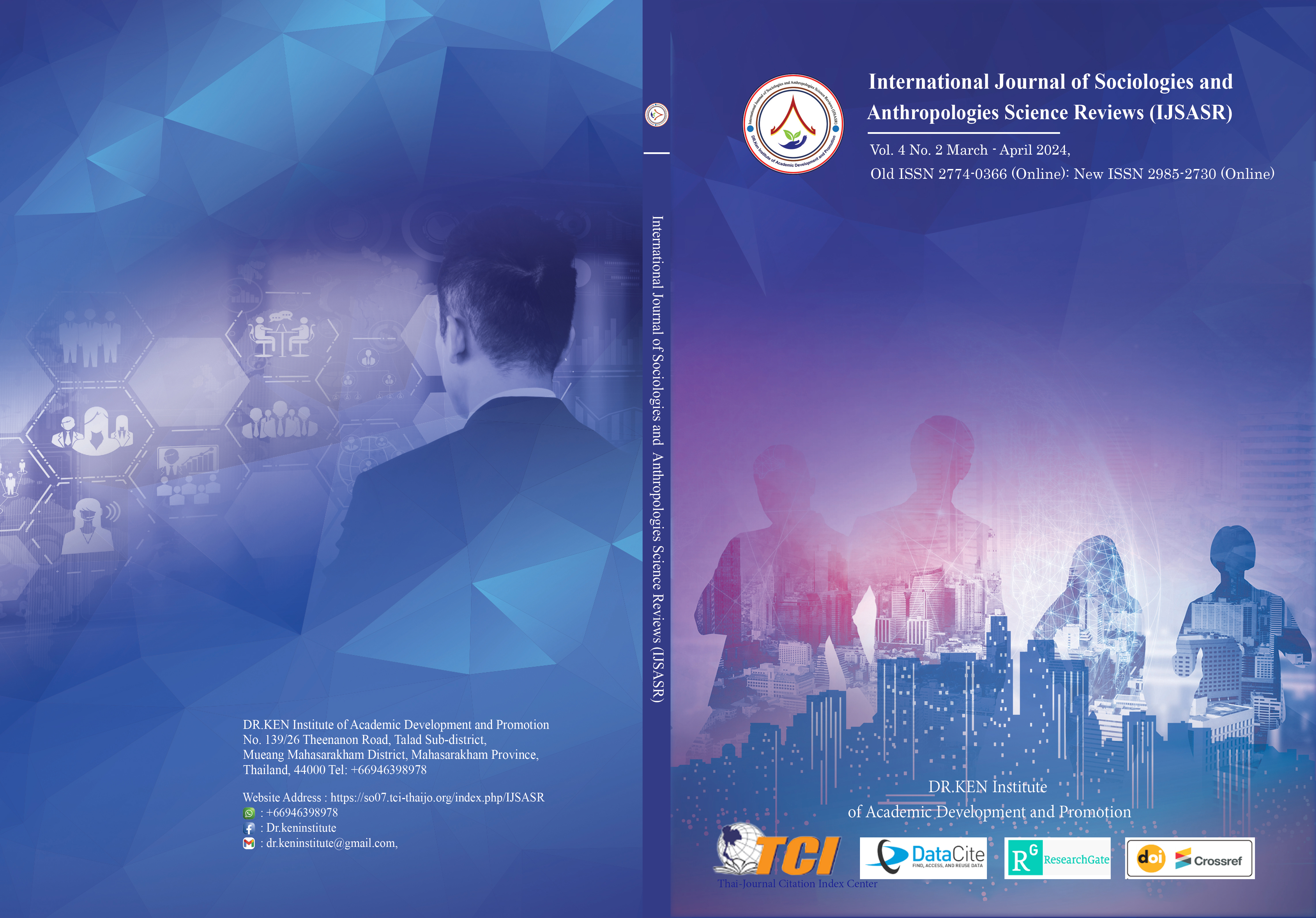Organizational Belonging Sense and Turnover Intention of Service of Outsourcing Employees in Zhongguancun in IT Industry in Beijing, China
Main Article Content
Abstract
Background and Aim: The purposes of this study were 1) to study the degree of organizational belonging sense of service outsourcing employees in Zhongguancun private IT enterprises in Beijing, China 2) to study the degree of turnover intention among IT industry service outsourcing employees 3) to study the recommendations to improve employee sense of belonging, thereby reducing employee turnover and improving employee performance and satisfaction. The samples of this study were 178 outsourced employees of private IT companies in Zhongguancun, Beijing, China calculated by and selected through a simple random sampling technique. The instrument used in the study was 21 items and 10 items with five close-ended rating scale questionnaires with 0.90 reliability and open-ended. The statistics encompassed frequency, percentage, mean, and standard deviation.
Materials and Methods: The results of the personal data of the samples were found as follows: described by gender mostly male, with the number 90 at 50.06 %, described by age, mostly under 25-year-old, the number 47 at 27.41 %, described by educational level were master degree and above, at the number of 67 with 37.64 %, described by educational level were master degree and above, at the number of 67 with 37.64 %, described by married status, were unmarried, at the number of 93 with 52.25 %, described by the type of work, were non-packaged employees, at the number of 94 with 52.81 % and described by working years, were one to three (1-3) years, at the number of 46 with 25.84 %.
Results: The results of the study were as follows; 1. The degree of organizational belonging sense of service outsourcing employees in Zhongguancun private IT enterprises in Beijing, China as a whole was rated at moderate. 2. The degree of turnover intention among IT industry service outsourcing employees as a whole was rated as moderated. 3. The degree of organizational belonging sense of service outsourcing employees in Zhongguancun private IT enterprises in Beijing, China as classified by item, all items were rated at moderated. 4. The first recommendation of the samples for improving the IT outsourcing employees' sense of belonging and preventing their propensity to leave was “The enterprise should create good culture by improving work cooperating among employees. The good corporation is the soul of the enterprise. It is the soil that breeds the sense of belonging to the organization and the employees will be proud to work in such an enterprise”
Conclusion: The population of this study is 318 outsourced employees of private IT companies in Zhongguancun, Beijing, China.
Article Details

This work is licensed under a Creative Commons Attribution-NonCommercial-NoDerivatives 4.0 International License.
Copyright on any article in the International Journal of Sociologies and Anthropologies Science Reviews is retained by the author(s) under the under the Creative Commons Attribution-NonCommercial-NoDerivatives 4.0 International License. Permission to use text, content, images, etc. of publication. Any user to read, download, copy, distribute, print, search, or link to the full texts of articles, crawl them for indexing, pass them as data to software, or use them for any other lawful purpose. But do not use it for commercial use or with the intent to benefit any business.

References
Chen, F., (2017). On the competence quality of IT outsourcing employees and measures to improve them. Information Technology and Vocational Education, 10, 62-63.
Fan, J. (1998). Applications and cases of SWOT analysis methods in Enterprise Strategic Management. British Food Journal, 108(11), 958-964.
Liang, G. Tsai, S.H., Lin-Shiau, S.Y., Chen, C.F., Lin, J.K., &et al. (1999). Suppression of Inducible cyclooxygenase and nitric oxide synthase by apigenin and related flavonoids in mouse macrophages. Carcinogenesis. 20(10), 1945-1952.
Liu, J., & Wang, B. (2019) Characteristics and management of IT outsourcing employees. Technology Information, 12, 96-98.
Liu, W. (2017) Study on the competency quality of IT outsourcing employees. Information Technology, 5, 126-127.
Luo, Y. (2008). Jonas Eymann, Andreas Timm-Giel: Mobility support for content-centric networking. Telecommun. Syst. 59(2), 271-288.
McMurray, A.J. Scott, D.R. Pace, R.W. 2004. The Relationship Between Organizational Commitment and Organizational Climate in Manufacturing. Human Resource Development Quarterly, 15, 473–488. doi: 10.1002/hrdq.1116
Mobley, W.H. (1977). “Intermediate linkages in the relationship between job satisfaction and employee turnover” Journal of Applied Psychology, 62(2), 237-240.
O'Reilly, C.A., Chatman, J., & Caldwell, D.F. (1991). People and organizational culture: A profile comparison approach to assessing person-organization fit. Academy of Management Journal, 34(3), 487–516. https://doi.org/10.2307/256404
Porter, L.W., Lawler, E.E., & Hackman, J.R. (1975). Behavior in organizations. McGraw-Hill.
Porter, L.W., Steers, R.M., Mowday, R.T., & Boulian, P.V. (1974). Organizational Commitment, Job Satisfaction, and Turnover among Psychiatric Technicians. Journal of Applied Psychology, 59, 603-609. http://dx.doi.org/10.1037/h0037335
Riketta, M. (2002). Attitudinal organizational commitment and job performance: A meta-analysis. Journal of Organizational Behavior, 23(3), 257-266.
Wu, L. (2018) Research on the influence of organizational belonging on employees' innovation behavior. Enterprise Reform and Management, 6, 99- 100.
Yamane, T. (1973). Statistics; An Introductory Analysis. New York: Harper & Row.
Yang, Z.D., & Zhang, W. (2019). A study on organizational belonging and its impact on employees' job performance. Journal of Technology and Economics, 5, 36-38.
Zhang, Z., & Li, Y. (2007). Photoacoustic Microscopy Imaging from Acoustic Resolution to Optical Resolution Enhancement with Deep Learning. ISCAS 2021, 1-5






